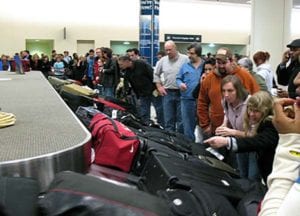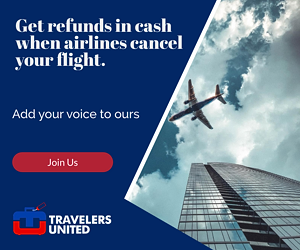Travel influencers must follow the FTC rules on truth in advertising.
 When we only saw travel advertisements in newspapers and on TV, consumers could rest assured knowing there was some truth in advertisements. After all, advertising options were fairly limited, and so the few ads that went out by big corporations were likely checked by a lawyer or two.
When we only saw travel advertisements in newspapers and on TV, consumers could rest assured knowing there was some truth in advertisements. After all, advertising options were fairly limited, and so the few ads that went out by big corporations were likely checked by a lawyer or two.The FTC has a simple endorsement guide for influencers.
This publication is called Disclosures 101 for Social Media Influencers.
If you endorse a product through social media, your endorsement message should make it obvious when you have a relationship (“material connection”) with the brand. A “material connection” to the brand includes a personal, family, or employment relationship or a financial relationship – such as the brand paying you or giving you free or discounted products or services.
Telling your followers about these kinds of relationships is important because it helps keep your recommendations honest and truthful, and it allows people to weigh the value of your endorsements.
As an influencer, it’s your responsibility to make these disclosures, to be familiar with the Endorsement Guides, and to comply with laws against deceptive ads. Don’t rely on others to do it for you.
You can contact the Federal Trade Commission at FTC.gov/influencers.
FTC funding is not sufficient to regulate influencers.
 Since the FTC is not funded enough to maintain consumer protection across all industries, state attorney generals could act — and one has in a notable case from Texas. Without much action from those in charge of enforcing the law, influencers have gotten away with everything from made-up personal claims to a total lack of advertising disclosure for a decade. At Travelers United, we are deeply concerned with how this lack of regulation about travel claims on social media is impacting the travel industry.
Since the FTC is not funded enough to maintain consumer protection across all industries, state attorney generals could act — and one has in a notable case from Texas. Without much action from those in charge of enforcing the law, influencers have gotten away with everything from made-up personal claims to a total lack of advertising disclosure for a decade. At Travelers United, we are deeply concerned with how this lack of regulation about travel claims on social media is impacting the travel industry.Made-up claims abound in social media.
- regularly made up claims about herself,
- did not disclose when she was being paid to post advertisements on social media, and
- wrote five-star reviews for hotels that paid her (without disclosure),
- who promoted brands that paid her in news articles without disclosing she was being paid to promote those brands and
- who threatened a journalist who questioned her claims.
Some claims made by influencers are simply false. Travelers United is holding them to the truth in advertising.
Brands and influencers both must follow influencer rules.
(b) For purposes of this part, an endorsement means any advertising message (including verbal statements, demonstrations, or depictions of the name, signature, likeness or other identifying personal characteristics of an individual or the name or seal of an organization) that consumers are likely to believe reflects the opinions, beliefs, findings, or experiences of a party other than the sponsoring advertiser, even if the views expressed by that party are identical to those of the sponsoring advertiser. The party whose opinions, beliefs, findings, or experience the message appears to reflect will be called the endorser and may be an individual, group, or institution.
(c) The Commission intends to treat endorsements and testimonials identically in the context of its enforcement of the Federal Trade Commission Act and for purposes of this part. The term endorsements is therefore generally used hereinafter to cover both terms and situations.
 If you know of a travel influencer or brand making false travel claims or a travel brand that regularly does not have disclaimers noting that posts on social media are advertisements, please reach out to Travelers United. We are taking this issue seriously.
If you know of a travel influencer or brand making false travel claims or a travel brand that regularly does not have disclaimers noting that posts on social media are advertisements, please reach out to Travelers United. We are taking this issue seriously.READ ALSO:
Don’t make customs agents’ jobs more difficult at the border
COVID may be over, but international travel rules can trip you up

Lauren joined Travelers United in 2015. Founded Kill Resort Fees, the only site devoted to ending hidden hotel resort fees. Armed with an arsenal of frequent flyer miles and some extreme budgeting skills, Lauren traveled around the world through 37 countries. Accomplishments include eating at the world’s largest restaurant in Syria, bungee jumping off the Victoria Falls Bridge on the Zambia/Zimbabwe border, running into Anthony Bourdain at a Mexican restaurant in Cambodia and cage diving with Great White Sharks in South Africa.
